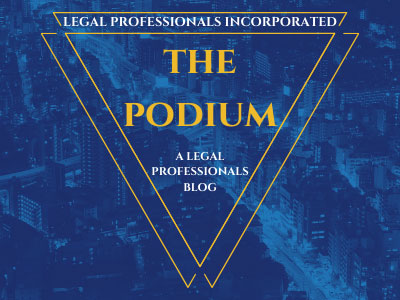
(ORIGINALLY PUBLISHED ONLINE AT “THE LAWYERIST” BLOG):
I recently visited a lawyer client of mine at her office. This particular lawyer shares space and a receptionist with a law firm for whom she also performs some work. When I gave my name to the receptionist, she immediately asked, “Are you related to Harry (not his real name)? He’s a client at this firm.”
I am not, in fact, related to “Harry,” but the receptionist’s question gave me pause. What if Harry had retained the firm on a matrimonial matter? (Matrimonial law was one of their practice areas). What if I were related to Harry (or worse yet, his wife) and Harry had not made public his marital problems or his intention to consult with a lawyer.
Even if Harry was very vocal about this firm’s representation or did not mind that the firm’s staff was publicizing the representation, there was no way that I would know that. The receptionist did not know whether I was a client or potential client of the firm or of the lawyer with whom I was meeting. I do not think I would have been too happy to know that the staff at my lawyer’s office was in the habit of publicizing the identity of their clients to anyone who happened to walk through the door.
All lawyers must be very aware of the importance of confidentiality to their clients, not just to be sure that they are in compliance with their jurisdiction’s ethical rules, but simply because they do not want to jeopardize their clients’ trust in them. This duty of confidentiality extends beyond the lawyer to the lawyer’s staff, and even to those who perform work on an outsourced basis for the lawyer or law firm.
It is important that lawyers reiterate the importance of confidentiality to all staff on a regular basis, and that they keep their eyes and ears open for unintentional slips. I am sure that the receptionist I encountered was merely trying to be friendly and making conversation; it was clear that she did not mean to cause any harm. However, these kinds of seemingly innocent confidentiality slips could cause major problems for lawyers, not the least of which is the loss of business or potential business.
COMMENTS:
1.) Very few lawyers and firms think to discuss confidentiality with their non-lawyer staffs. In my 18 years as a legal secretary, I’ve been advised about confidentiality only once. It was on the first day of my first legal job, and, fortunately for my employers since that time, the comments of that one elderly lawyer made a lasting impression. But does every secretary, receptionist, and mail clerk have such a good memory?
2.) Client confidentiality is one of the main concerns I have as an outsource provider of legal secretarial/administrative services. This is why every person who is a part of my organization must have a minimum of 2 (most have over 10) years in a traditional law firm setting. Each is also interviewed by myself and my operations manager and anyone not exhibiting a profound knowledge of how confidentiality applies in the real world is not accepted.
As stated, I’m sure the receptionist was just making conversation – the problem is not with her. All incoming staff must be educated on confidentiality and told to use only client first names – to NEVER divulge the last name of a client to anyone other than another staff member (when no one else is in hearing range).
Along with verbally guarding client identity, staff should also be instructed not to leave papers lying about where they can be looked over by anyone other than the client or other staff. I cannot tell you how many times I’ve walked into a law firm to see documents strewn across the receptionist’s desk – in plain view. Definitely another no no in my book
Ultimately, it is the firm and the supervising attorney who will pay the price for any staff not understanding and applying confidentiality.
Categorized in: Legal Procedure
| << previous | next >> |








